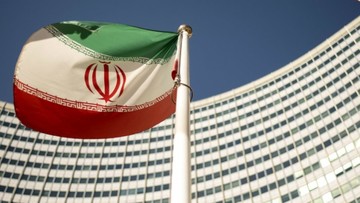Iran has also consistently stated that it is implementing its commitments until other parties show adherence to their commitment regarding Joint Comprehensive Plan of Action (JCPOA) and in accordance with the text.
The International Atomic Energy Agency (IAEA) has announced a total of 14 times on Iran’s full adherence to Joint Comprehensive Plan of Action (JCPOA) since its launch. The first report of the Agency was released on January 16, 2016, and in accordance with Security Council Resolution 2231 and the agenda of the Board of Governors, and by confirming the implementation of the measures specified in paragraphs 15.1 to 15.11 of Annex V, JCPOA was commenced. January 16, 2016, was 'Day of Implementation of JCPOA”, in accordance with the planned schedule. The Agency, on February 26, 2016, also approved the full implementation of Iran's obligations by releasing a report.
The third report of the Agency was released to the Board of Governors and the Security Council on May 27, 2016, and reaffirmed the implementation of Iran's commitments. The fourth report of the Agency from the day of implementation, on September 8, 2016, the fifth report on November 9, 2016, the sixth report of the Agency was released on February 24, 2017, and the Agency, in all of these reports, fully confirmed Iran's compliance to its commitments on and non-diversion of Iran's nuclear material.
The International Atomic Energy Agency in 2017 also repeatedly emphasized Iran's commitment to the JCPOA. The Agency's seventh report on Iran's compliance was released on Friday, June 2, 2017. The report stated that Iran's heavy-water production plant was shut down for repair and maintenance and heavy water reserves of Iran were 128.2 tons. During the reporting period, Iran had no more than 130 tons of heavy water.
Also, the IAEA report indicated continued research and development activities for enrichment and the production of rotors and parts of centrifuges in the framework of the JCPOA and noted that Iran had not carried out activities related to re-process of at the Tehran Research Reactor or other notified facilities to the Agency.
During the reporting period, total storage of Iran's enriched uranium has not exceeded 300 kg enriched uranium hexafluoride to 3.67% U-235 (or equivalent to other of chemical forms). By May 27, 2017, the amount of Iran's enriched uranium on 3.67% level was 79.8 kg based on the JCPOA and decisions of the Joint Commission.
Following the publication of this report, the IAEA Board of Governors meeting was held on June 12-16, 2017 in Vienna, and the Director General of the IAEA at the beginning of the meeting said that the Agency will impartially continue the verification and monitoring the implementation of all Iran-related nuclear obligations in accordance with standard procedures of Agency safeguards impartially. At a news conference on the sidelines of the meeting, Amano confirmed that 20 tons of Iran's heavy water reserves will be transferred in the near future.
The ongoing implementation of Iran's commitments was evident while the US government was refusing to abide by its obligations, and according to Iranian officials, US obstructions prevented Iran from benefiting from the JCPOA. In that regard, the IAEA Director General, Yukiya Amano, on Friday, October 21, 2017, responded to the remarks by the President of the United States about the issue, emphasizing that Iran is currently subject to the strongest nuclear verification system, and that all nuclear commitments are in accordance with JCPOA are running.
Amano issued a statement announcing that the International Atomic Energy Agency (IAEA) has monitored the fulfillment of Iran's nuclear-related obligations since January 2016 and has approved the implementation of these commitments.
Islamic Republic of Iran for more than three years since the implementation of JCPOA until very day, has had good cooperation with IAEA and with fully and accurate implementation of its commitments hindered any pretext in the favor of the US but the US lack of adherence to its commitments and leaving the JCPOA, the other parties, according to their promises, have not been able to fully realize Iran's benefits in the predicted interest.
While a year has passed since the United States has exited the JCPOA t and the United States has restored its illegal sanctions against Iran, the Islamic Republic of Iran, with the policy of patience and full implementation of its nuclear obligations, is awaiting practical steps by other parties, including Europeans, to safeguard Iran's interests.
This is while the right of reciprocal action by Iran is anticipated in the face other parties’ violation of its obligations. In accordance with article 36 of the JCPOA text “If Iran believed that any or all of the E3/EU+3 were not fulfilling their commitments under this JCPOA, Iran could refer the issue to the Joint Commission for resolution. If the issue still has not been resolved to the satisfaction of the complaining participant, and if the complaining participant deems the issue to constitute significant nonperformance, then that participant could treat the unresolved issue as grounds to cease performing its commitments under this JCPOA in whole or in part and/or notify the UN Security Council that it believes the issue constitutes significant non-performance.”

The IAEA has repeatedly confirmed full implementation of Iran's commitments while the country has the right to take reciprocal measures against breaching the obligations.
News ID 190272


Your Comment